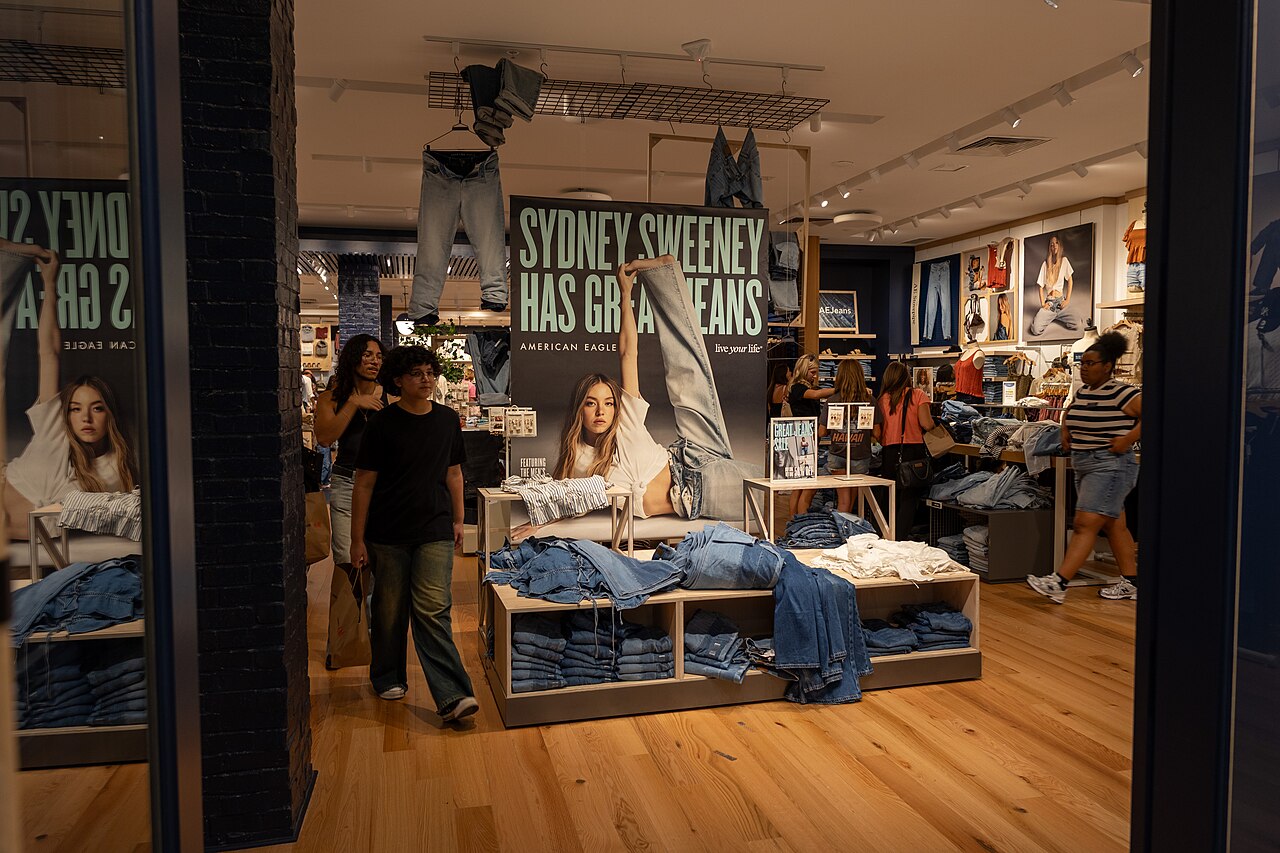The genes–jeans controversy and the state of American consumerism
At the end of July, a seemingly traditionalist advertisement for jeans sparked a nationwide debate. A month later, there remains widespread disagreement over whether the campaign has done more harm than good.
The American Eagle ad campaign, which featured Sydney Sweeney sporting a pair of signature blue jeans, was decried by many as out of touch, reflecting a lack of diversity in its target audience that had previously been an industry standard.
In the ad, Sweeney says the following:
“Genes are passed down from parents to offspring, often determining traits like hair colour, personality, and even eye colour. My jeans are blue.”
Critics have argued that the ad’s play on words suggested a narrow standard of conventional beauty based on race, echoing historical rhetoric associated with American conservatism and even bordering on eugenics.
Targeted at a Gen Z audience (15 to 25), the ad harked back to other historic campaigns using young celebrity endorsements as eye-catching sales tactics. However, many commentators noted the ad failed to address the importance of inclusion and uniformity in perceived beauty standards. Despite this, the campaign managed to revive American Eagle’s sales during a notable period of financial struggle, throwing a fresh spotlight on a brand that had slipped in sales, despite being the number one denim brand among young consumers.
The star’s presence with the jeans brand helped bolster its cultural hype and relevance, especially with Gen Z fans
The Times reported that by mid-August, the campaign had generated a total of 4 billion online impressions, contributing to a $200 million increase in market value. This followed an unsteady Q1 and Q2 for the company, during which sales had declined. The company stated that the ad helped them avoid the undesirable fate of further financial losses.
The ad carried cultural reminiscence of the famed 1985 Levi’s jeans commercial starring Mark Kamen, which drove sales up by over 800% the same year it aired. In August, Beyoncé released the final instalment of her own, year-long, ‘Denim Cowboy’ campaign with Levi’s. The star’s presence with the jeans brand helped bolster its cultural hype and relevance, especially among Gen Z fans, with whom the her music remains incredibly popular.
The broader question is whether American Eagle intended to market controversy as part of the product itself. The debate around this is yet to subside, with many believing that the argument itself around the ad’s meaning was an integral part of the company’s marketing ploy.
The cultural baggage surrounding the controversy, and the reality that the debate has been drawn out, have the potential to leave a lasting mark on the brand
The brand was quick to release a slate of follow-up ads featuring a more diverse cast, claiming that the campaign was firmly about the jeans, and not a broader muse on beauty standards or any other mutable characteristics.
At the beginning of August, American Eagle Outfitters released a statement, saying:
The campaign “is and always was about the jeans. Her jeans. Her story. We’ll continue to celebrate how everyone wears their AE jeans with confidence, their way. Great jeans look good on everyone.”
The long-term impact of the ad on the brand is less concrete. The cultural baggage surrounding the controversy, and the reality that the debate has been drawn out, have the potential to leave a lasting mark on the brand that could negatively affect it. Conversely, it might be a symbol that brands are now playing into, rather than figuring out how to step around, a more polarised country where starker political and ideological rifts are becoming more deeply entrenched.
Whether it reflects marketing ingenuity or a branding faux pas is in the eye of the beholder. It cannot be ignored, however, that this has triggered a huge groundswell of attention for the brand.

Comments (1)
This content touches souls